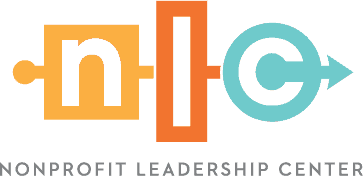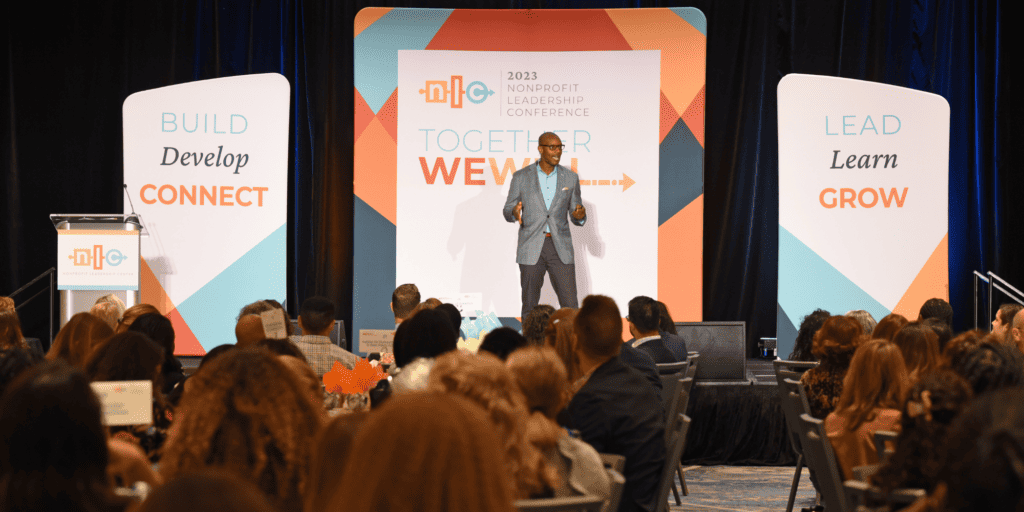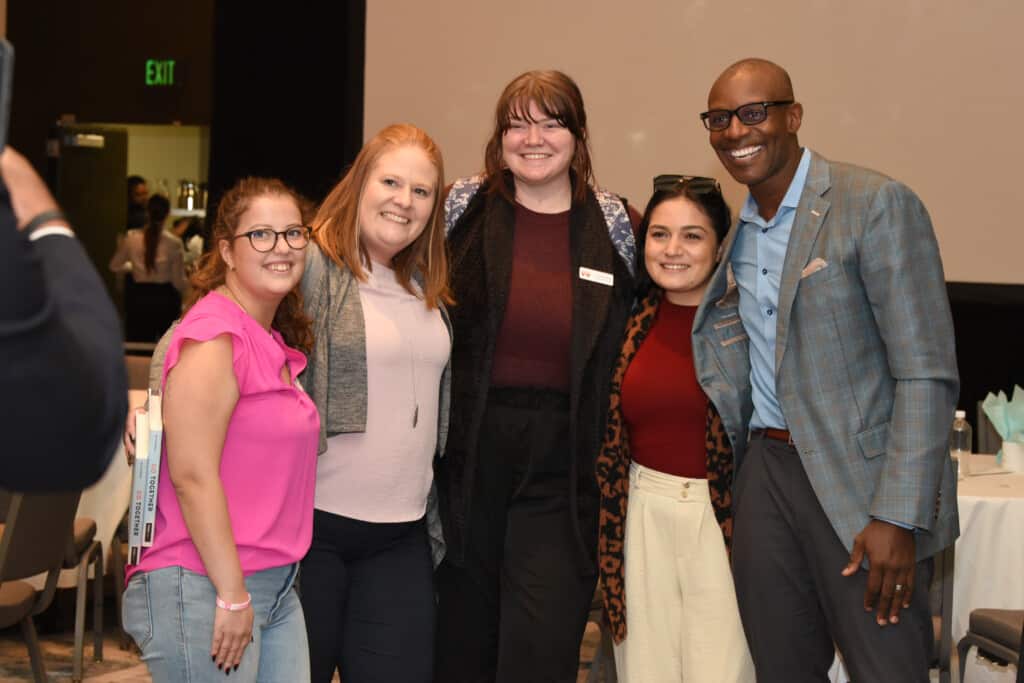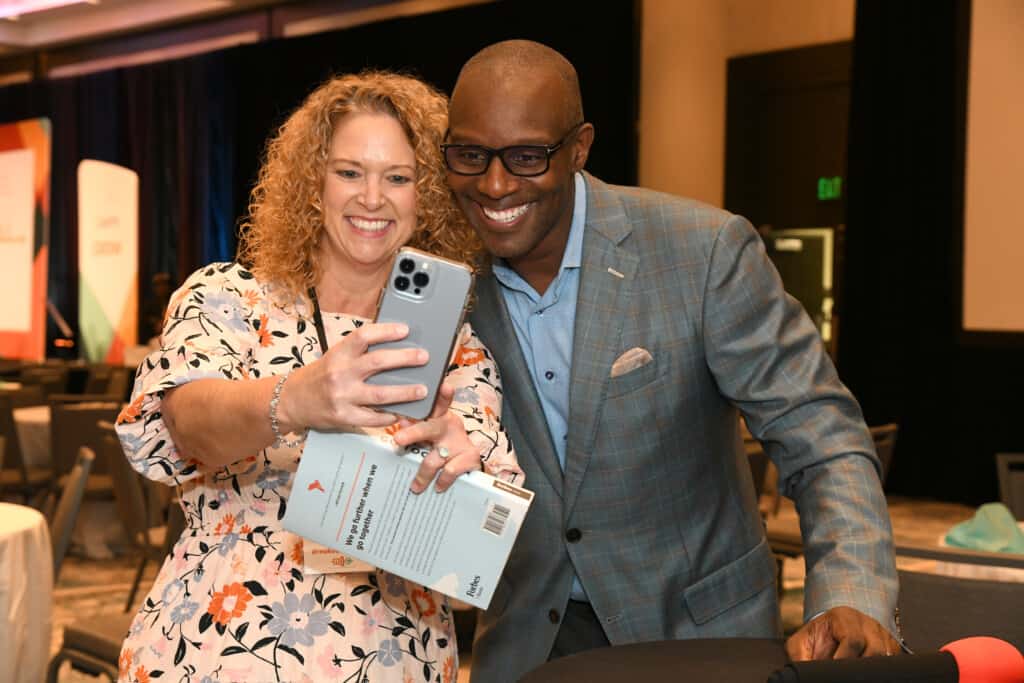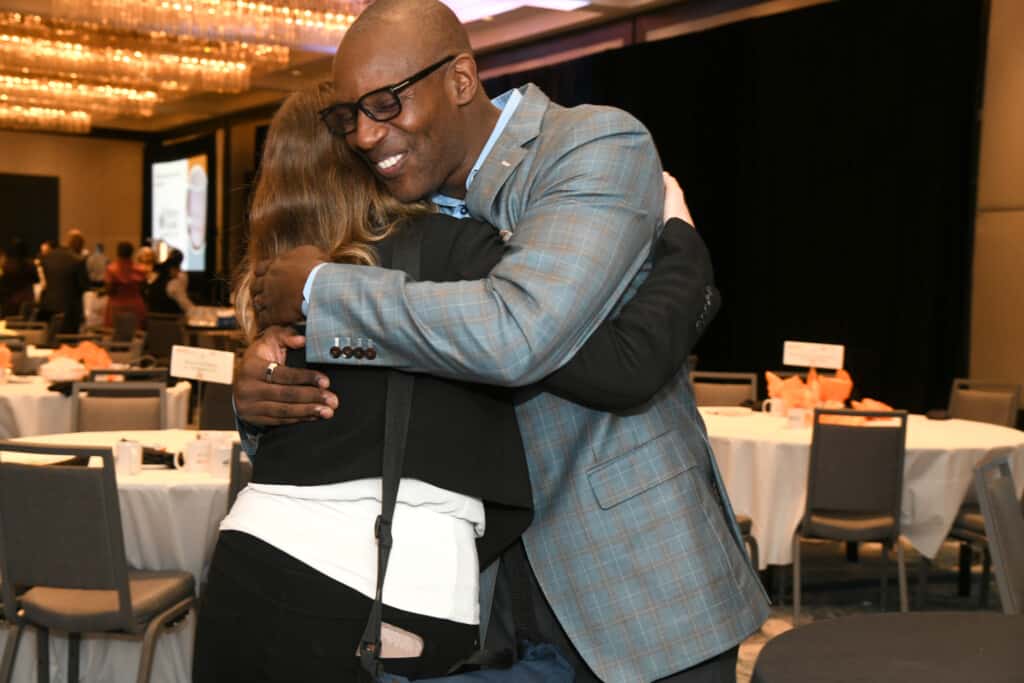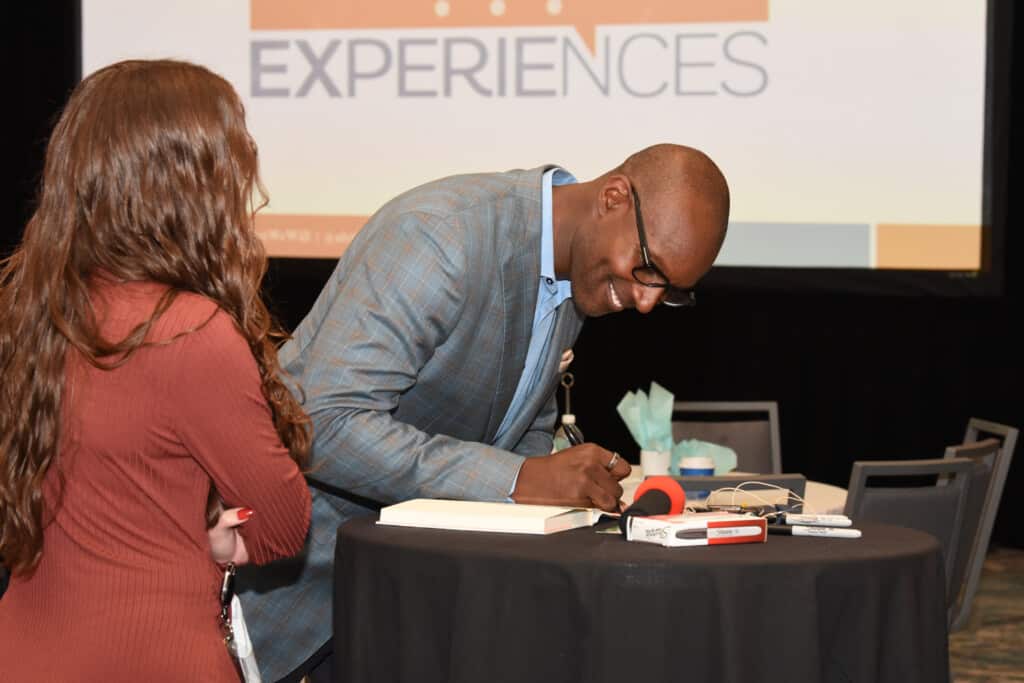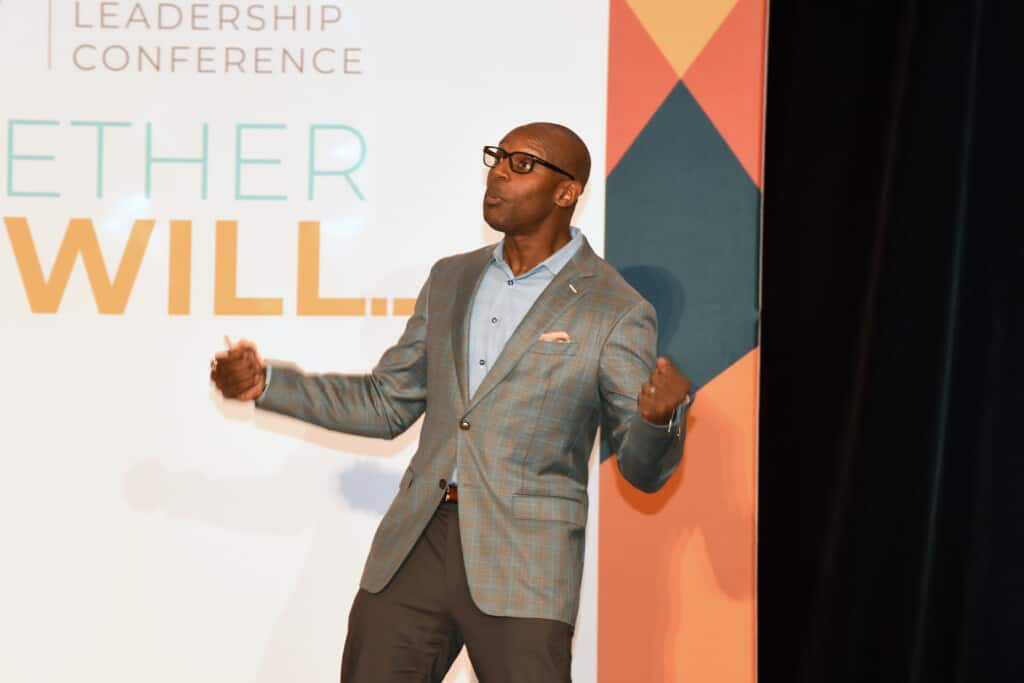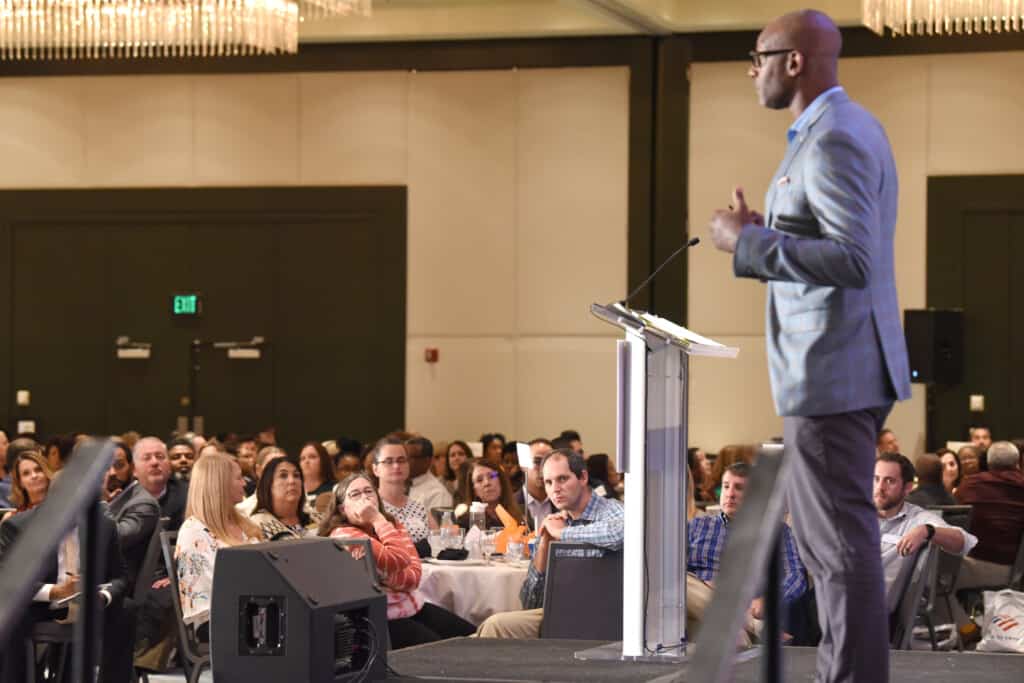As Shola Richards took the stage at the 2023 Nonprofit Leadership Conference, he shouted Ubuntu to the crowd. Ubuntu is an African term that means “I am because we are.” More than a word, Shola says Ubuntu is the height of human compassion and kindness.
He knows first-hand how critical human compassion and kindness are within a workplace.
Nearly 20 years ago, Shola worked in a toxic environment plagued by bullying and discrimination. Exhausted by what he describes as a soul-crushing culture, he decided to take his life by driving his car off an overpass in Los Angeles. When his vehicle clipped the guardrail and he was about to careen to his death, something remarkable happened. Shola — a name that means “one who is blessed” — found his true purpose: to reverse negative workplace cultures and fight for all people who may be struggling. With half of a second to spare, Shola yanked the steering wheel away from disaster. And we are all better for it.
That brings us back to Ubuntu.
A recent Gallup survey revealed that people are more stressed and unhappier than at the height of the pandemic.
To address today’s challenges and improve workplace cultures that allow people to thrive in all aspects of their lives, Shola believes creating a spirit of Ubuntu in the workplace is essential.
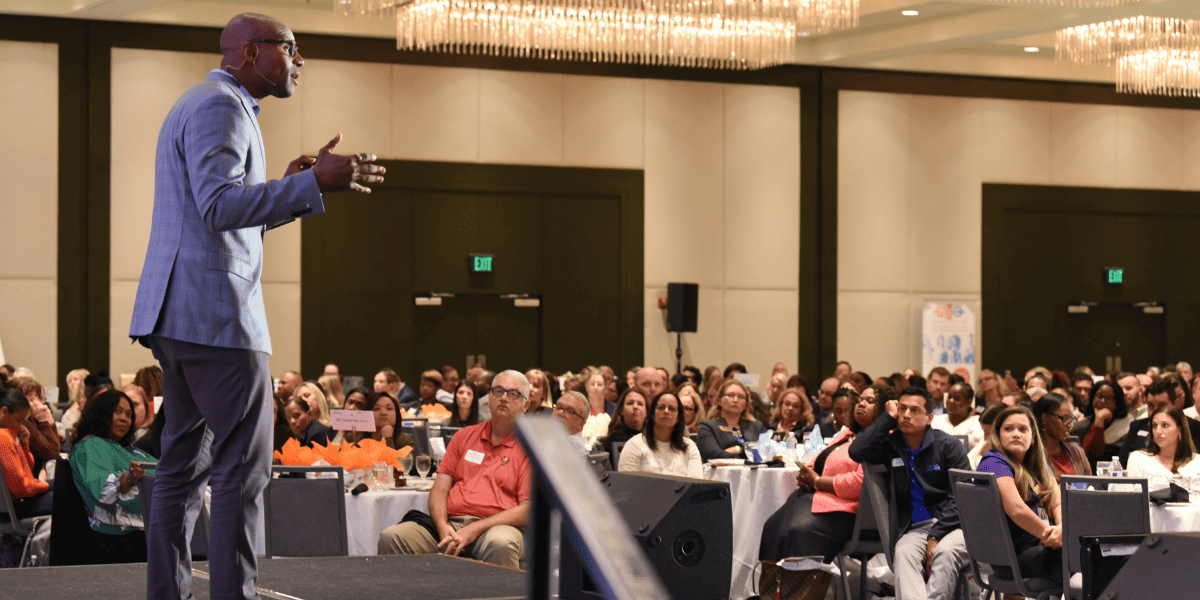
3 Questions to Bring a Spirit of Ubuntu to Your Nonprofit
To bring a spirit of Ubuntu to your nonprofit culture, Shola Richards encourages you to ask yourself these three critical questions.
1. Is it kind?
Three in 4 Americans believe incivility has reached crisis levels (Source: Weber Shandwick and Powell Tate with KRC Research). Yet, several studies show that most people think they’re nicer than they actually are.
The first element to creating a healthy workplace culture is asking yourself if what you do or say is kind. But Shola says it’s critical to understand that being nice and kind is not the same.
“Don’t use the words nice and kind interchangeably. Nice is something you do. Kind is something you are.”
Shola Richards Tweet
Shola describes the concept of being nice as polite or agreeable. On the other hand, being kind is demonstrating through your actions that you genuinely care about another human being.
“My mom taught me there are two types of people in the world,” Shola said. “Ones that make you feel good as soon as you walk into a room, and ones that make you feel better as soon as they walk out. You’re born looking like your parents, but you die looking like your decisions, so make them count.”
2. Is it true?
The second question you need to ask yourself is whether your actions or words are true. Trust is essential to ensure psychological safety — a belief that one will not be punished or humiliated after speaking up with ideas, questions, concerns or mistakes (definition from Harvard Business School Professor Amy Edmonson).
Shola encourages leaders to remain curious and avoid judgment. That includes choosing to be an upstander.
Upstanders are people who do something when they see something is wrong and attempt to address or stop it.
Trust and commitment go hand-in-hand. Shola says showing true commitment means staying loyal to what you said you were going to do, long after the mood you said it in has left you.
3. Is it necessary?
Finally, to create a kinder workplace culture with more human compassion, Shola urges people to ask if what they say or do is necessary.
The one thing that’s a non-negotiable necessity is having the courage to go together. As only together is more possible.
Shola believes relationships are key to resilience. Each of us needs people in our lives who will show us empathy, remind us of our purpose and vision, offer perspective when we’re getting off track, help us laugh when we’re taking ourselves too seriously, push back to ensure we advocate for ourselves and help us make sense of politics and work surges so we can manage our energy.
If you want to go fast, go alone. If you want to go far, go together.
African Proverb Tweet
How to Get Started: Just Today
“Many of us know what to do,” Shola says. “But people often don’t do what they know. Sadly, common sense is not that common.”
So, how can you put Shola’s common-sense tips into practice? He suggests starting with “just today.” Start by doing the right thing for “just today.” Then try repeating that tomorrow.
“When things get hard — and they will — do the right thing just today,” Shola said. “When we change ourselves, that’s how we change our communities and the world.”
Ubuntu.
Register Now for the 2024 Nonprofit Leadership Conference
Join hundreds of nonprofit peers and partners in Tampa on October 8, 2024. With equal parts motivation, conversation and education, nonprofit leaders will unite as champions for change to strengthen our sector and communities.
Explore Upcoming Events
See all the upcoming nonprofit training classes and certificate programs from the Nonprofit Leadership Center to strengthen your nonprofit and our communities.
